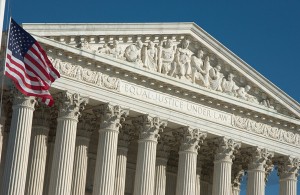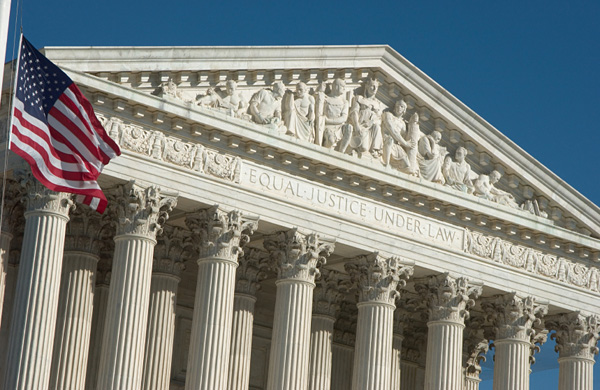 By David C. Savage, Tribune Washington Bureau –
By David C. Savage, Tribune Washington Bureau –
WASHINGTON — The Supreme Court is set this week to decide the politically charged constitutional clashes between President Barack Obama and Republicans over his health-care reform law and his immigration enforcement policy.
By most accounts, the justices must make a stark, clear choice to either endorse Obama’s policies —including the mandate for all to buy health insurance — or to strike them down as flatly unconstitutional.
But the justices could rule in unexpected ways that would allow both sides to claim a victory.
Since the spring, when Obama’s lawyers were hit with hostile questions at oral arguments, the administration has faced the prospect of a double defeat. It appeared the court’s more conservative justices could strike down the entire health-care law and rule Arizona and other states are free to arrest and jail illegal immigrants. Many are predicting just that.
But Chief Justice John G. Roberts Jr. has said he hopes to avoid momentous rulings that turn on a 5-4 vote, and both cases offer the justices other options that have been overlooked.
The health-care case has been fiercely debated as a test of whether Congress can require individuals to buy health insurance under its power to regulate commerce. Opponents have likened it to forcing Americans to buy vegetables.
Lurking in the background is a way to decide the case on tax law grounds. No one can be prosecuted, punished or fined for violating the mandate. In fact, the word “mandate” does not appear in the law. In “practical operation,” the administration argued, it’s just a tax law.
If the mandate is really just a tax, that would be supported by the Constitution, which says Congress “shall have the power to lay and collect taxes … to provide for the common defense and general welfare.”
So, in the end, the justices could agree that the law’s required tax payments are constitutional, while also making clear the government does not have broad power to mandate purchases.
Upholding the law on tax grounds would be a big win for the president. “It’s a neat way out of the box and the most reasonable way to uphold the law,” said Washington attorney Andrew Pincus. But it also would give Republicans fodder for arguing the health-care law means new taxes, a claim Obama disputed when the bill was being debated.
There are several other possibilities. The court could uphold the law as a regulation of commerce because health care is unique. Or the justices could strike down the entire law.
If the court were to strike down the mandate while upholding the rest of the law, both sides could claim a victory. The Republicans could say Obama and the Democrats were slapped down for violating the Constitution. The president and his allies could say the insurance reforms and the expansion of Medicaid will provide better health care to millions of Americans.
A ruling in the Arizona immigration case also could leave both sides claiming a win. At issue is whether states can enforce laws against illegal immigrants, or whether this power rests solely with the federal government.
Two years ago, the Arizona Legislature, frustrated over federal inaction, told its police to check whether people they stop for some other reason are in this country legally. Its also made it a state crime for immigrants to seek work or to fail to show proper documents. Before the law could take effect, however, the Obama administration sued and won rulings that put its key provisions on hold.
During the arguments in April, Roberts and several of the liberal justices suggested they would uphold the “stop and question” part of Arizona’s law but block the provisions that make it a state crime to be an illegal immigrant.
The Immigration and Nationality Act says federal authorities have the final word on who is deported, but it also says states may “cooperate” in the “identification, apprehension and detention” of illegal immigrants.
The most disputed provision in the Arizona law tells the police that when they make a lawful stop, they must check the immigration status of any person they suspect is “unlawfully present in the United States.”
The chief justice said he saw no problem with this provision. Once the police detain a suspected illegal immigrant, they would contact federal officials. “It’s still your decision” on whether to hold or release the individual, Roberts told the administration’s lawyer.
On the other hand, the parts of the law creating separate state crimes — if upheld — would allow Arizona to send illegal immigrants to jail, even if federal authorities objected. The justices hinted they were likely to block those provisions as conflicting with federal law.
If so, Arizona can claim its law has been upheld, but it will be a much weaker version.
In its final week, the justices will also decide whether it is cruel and unusual punishment to send a 14-year- old to life in prison with no chance for parole, and whether the First Amendment protects a liar who claims to have won military honors.
The court says it will issue decisions on Monday, but the final rulings are not likely until Wednesday or Thursday.









